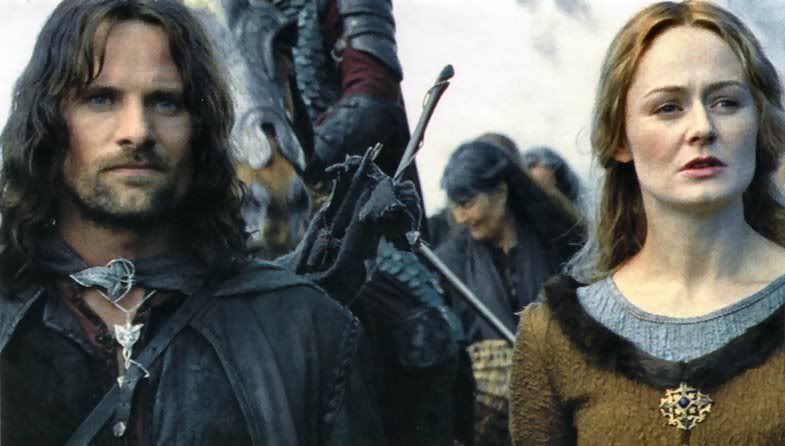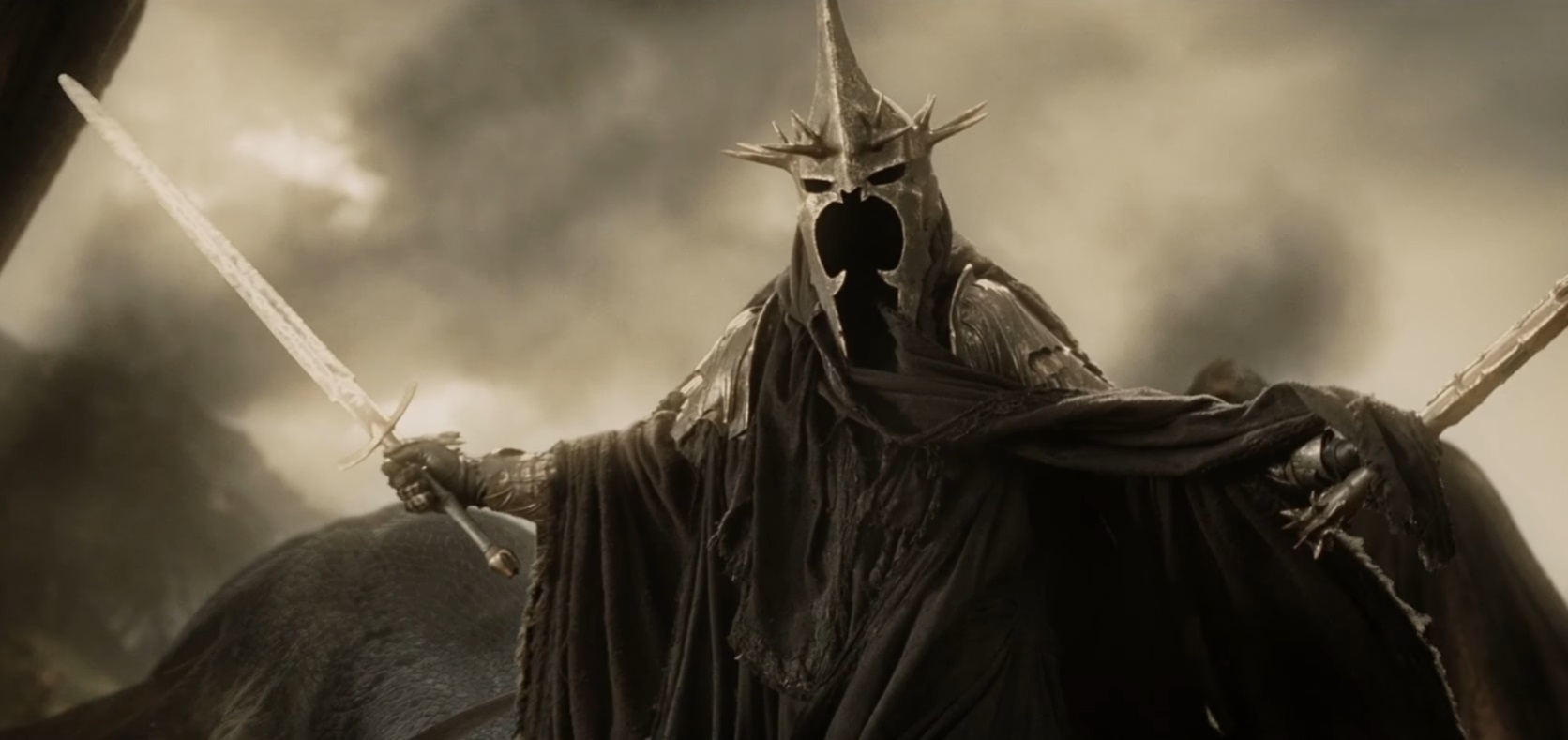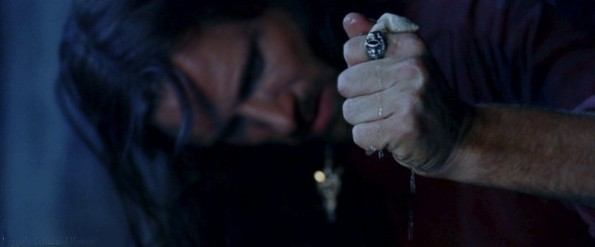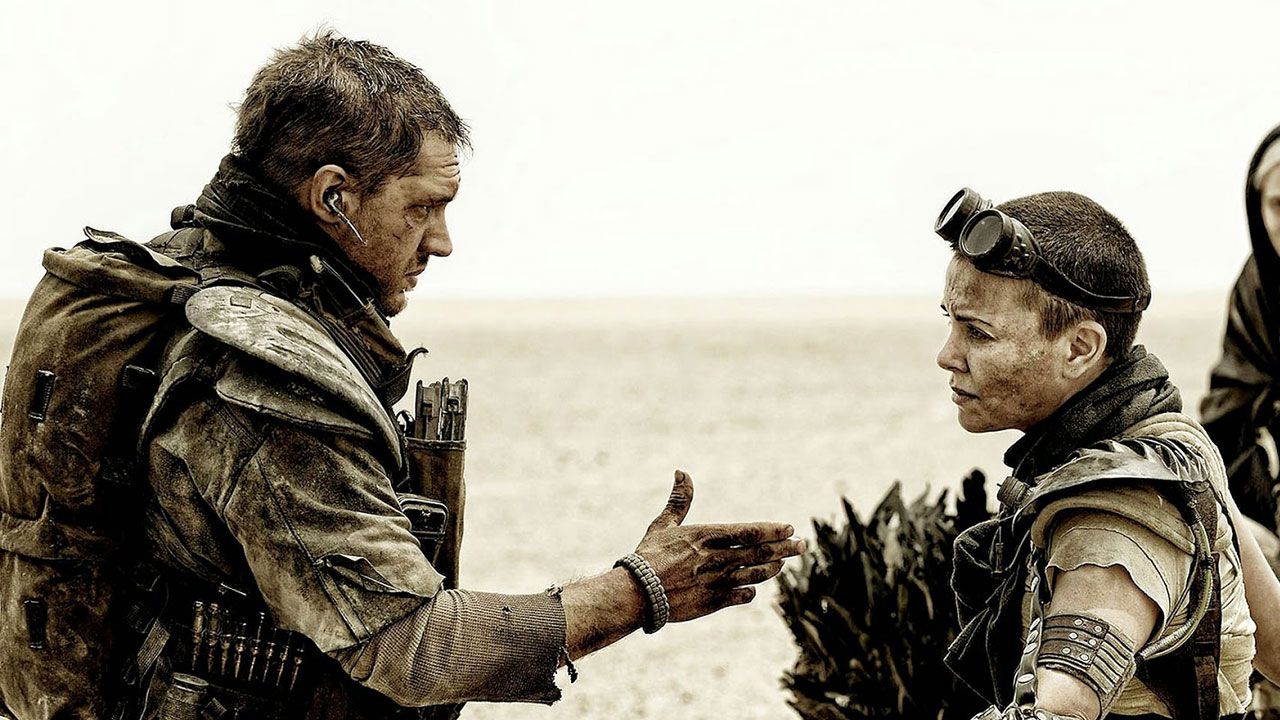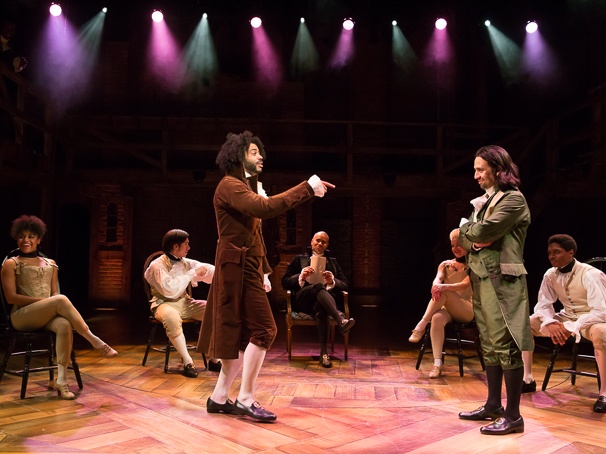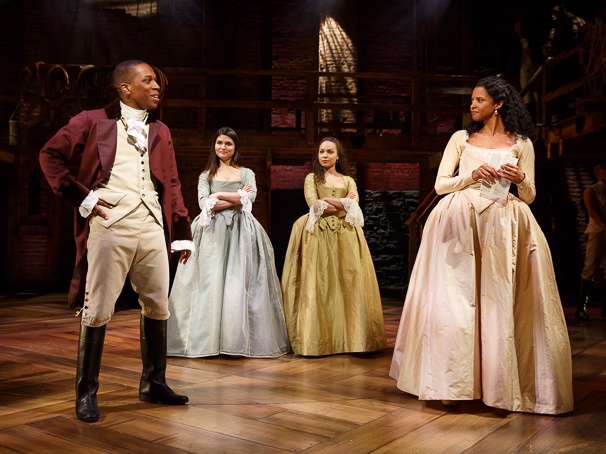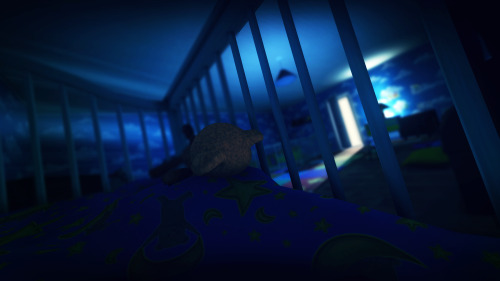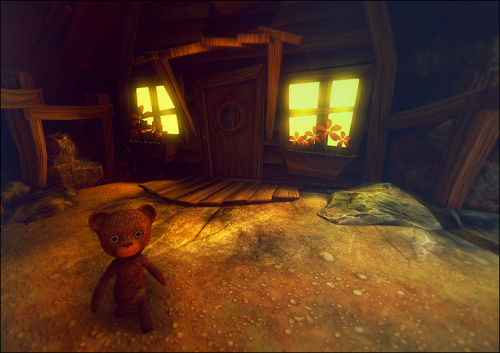(SPOILERS)

I got teary-eyed, yeah. It was amazing seeing some gifted storytellers and seriously divinely-inspired art designers rip back into this universe like they're all snorting the cocaine of the science fiction gods. But there was one moment that made me absolutely thrill.
Early on in the film, our two protagonists Rey and Finn are sprinting away from bad dudes who are chasing them down for something valuable they have. Rey is a worse-than-destitute scavenger who days ago was scraping out a life in a busted AT-AT on a quarter ration of blue food, and Finn was a runaway soldier from a group he doesn't believe in. These guys are nobodies.

But they've got to survive and get away. Rey leaps behind the controls of a spaceship and Finn straps himself behind a gunner's turret. Dehydrated and totally unsure, he gasps: "I can do this. I can do this." Rey, sweating and eyes scanning everything, breathes: "I can do this. I can do this."
And they don't have a choice. They do. The ship rumbles into the air, they shout jargon and desperately try to keep in the air, and by the time it's over they come back with utter surprise and amazement at each others' success. "How did you do that? You were amazing! No, you were!"
Star Wars started as a story that valued the power of Greek tragedy and stories of prophecy and destiny. But Star Wars has come to represent something else. Over years of movies, novels, and games that has spread over a galaxy's worth of lives, the message is this:
There is a place for you here.
At first the series had something for everyone: cool sci-fi, banter and romance, and even some spirituality. "May the Force be with you" has become a watchword, a symbol of the connection we all have. But years later, people know the ins and outs, from mynocks to midichlorians. Even new converts to the Star Wars canon know Boba Fett, a guy who had 4 lines in the original trilogy! (My college roommate named his car Slave One after Boba Fett's ship, a name never mentioned in the movies.)

Now it provides stories for so many people on so many levels. If you don't feel like a Jedi, there are smugglers and ships to be had. There are wars to be fought for the Republic or the Rebels or the Resistance. There are strange creatures to feel akin to: Twi'Leks and Ithorians and the whatever-Yoda-was and the whatever-Plo-Koon-was and even Samuel L. Jackson. It's an inhabitable universe, and to joke about the silly names does nothing to diminish the power of a universe that empowers people, and has empowered them since its creation.
How did a story of an exclusive order of glow-sword-wielding priests become the populist anthem of generations? How did a dorky space opera fill every household and inspire people to tears and shouts of joy? I don't really know all that, but I think it bears a message for us, and J.J. Abrams' newest installment made me think of three in particular:
First, There is always something to learn.
Life moves really, really fast. I mean, look at any single shot from "The Force Awakens". I bet you 5 bucks at least one person is running in that shot. If not, there is something important and sci-fi-ish happening. If not that, there is sweeping John Williams music playing or about to play. Now give me 5 bucks.
My first genuine response to "The Force Awakens" came during the rolling opening credits. Mention was made of "The Resistance's best pilot" who we learn later to be Poe Dameron, and I got tiny chills. "Ooh, someone new," I thought, and I wasn't disappointed. Poe is a powerful character with a strong will, deep love for others, and most of all, enthusiasm and passion for his talent. He's a pilot, and we get to see that excitement over and over again.

Rey is similar to Poe, even if she lacks his opportunities. While he's flying for the Resistance like a boss, Rey lives in squalor, salvaging little pieces off of ships. But Rey is constantly learning, and working to learn, and this defines her more than her unassuming beauty or her connection to the Force. (For example, when she turns a lightsaber on for the first time, there's a reason her fast learning doesn't surprise us.)
I loved watching Rey in her house, eating her little power-bread and sitting with her rebel pilot's helmet on. For me, it totally beats the Luke-looking-out-at-twin-suns moment, and Rey is a cooler, more interesting person than him.
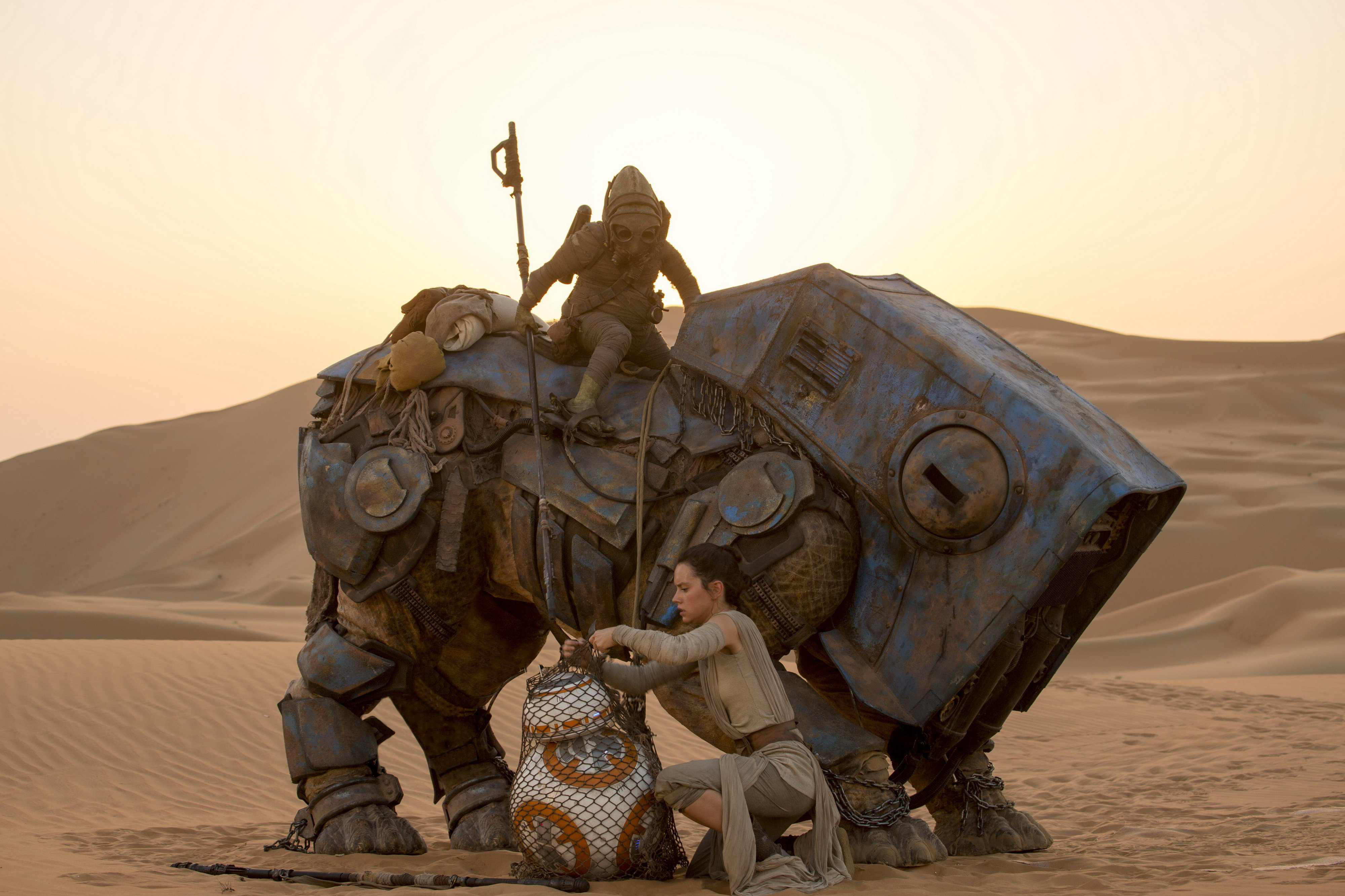
If I was orphaned and abandoned on a desert planet, I would probably get pretty down on myself. But Rey's reaction is the one that I truly hope to have in my life to adverse circumstances: Learn and grow. Rey becomes an expert on technology, on her world, and on the people in it. She observes closely, she understands systems, and she tries to improve them, rerouting a power problem in the Millenium Falcon and opening doors in the First Order base.
There are lots of things to learn about the Star Wars universe, if you were ever interested and know how to read a Wiki. But more importantly, there are so many things to be learned about the real universe. Wouldn't it be incredible if every time you encountered something you didn't understand, you learned until you did it? What if you approached a computer this way? A car? A business? A family? A nation? You could learn so much, so fast.
And true learning doesn't make us cynical. Ignorance is so often full of boredom and disinterest. True learning inspires awe. When Rey sees a green planet for the first time, her face is full of wonder and curiosity. That may not have been what motivated her to learn in the first place, but learning helped her feel it.
Second, not everyone has vision, and this is beautiful.
In real life as well as in Star Wars, some people have Vision. Some people can connect to the Center of things in ways that nobody else can. They lead. They help others see things differently. Sometimes charismatic but often not, they transform the shape of the future, and help us understand the past. They are like Jedi.

(Disclaimer: Jedi are not better than anybody else. Sometimes people who could be great real-world Jedi become real-world Sith instead, and sometimes people who want to be Jedi end up working for the Sith because they aren't. Some markers of the Dark Side? Jealousy and bitterness are major ones. If you feel your genius and vision is not being listened to and others are foolish, maybe you're stepping in the wrong direction. You could probably just write a movie blog and pretend people read it to temper your self-obsession. :)
(2nd Disclaimer: Is it okay not to be a Jedi? I think so. If you want to be important just because of the rush of it, then maybe you're looking at it the wrong way. Though the Star Wars movies make it look like that Jedi are the most important, I think truly important people are endlessly empowering others. Hopefully there will be some more chances to see this in other Star Wars films. If not, I'll make one. With Legos and stop-motion.)
Some really intense person on Wikipedia says that Jedi are "an ancient monastic, spiritual and academic meritocratic organization...[the Order] mostly consists of polymaths; teachers, philosophers, scientists...the Jedi study, serve, and utilize a mystical power called The Force". Being a Jedi would be an incredible experience and an incredible burden, and definitely where I would want to be were I in the Star Wars universe, if mostly for the deep conversations and lightsabers.
The burden is revealed a little bit in Rey's vision near the middle of "The Force Awakens". At the pirate conclave, Rey faces a vision of the force that terrifies her, that shows her the darkness of her past and the incredible challenges of her future. The experience is so harrowing that she says she will never come close to it again.

So, a message to those who might secretly be Jedi, but don't know it: sometimes the Light Side will scare you. It might pull you to overturn old stones and re-open old wounds and help you find healing. It might call you to be thousands of times better than you are now, but don't worry. It will help you. If you don't follow that whisper, it may be that no one will take your place.
And an even more important message: if you are not a Jedi, and you know it, first of all, you might be anyway so look at the last paragraph.
But if you aren't. If you haven't felt the Force, or don't really feel like you have a mission, keep an eye out for these people. Look at Finn! Finn wields a lightsaber, fights a Sith Lord, connects all the major players in the film, and is deeply important! And though he may be a Jedi, let's say for my purposes that he isn't.

Finn recognizes something incredible in Rey. He is the key force (intentional word use) that propels her to taking hold of her destiny. So if you are not a Jedi, find them. Find people with vision. Listen to them. Help them. Argue with them when they are wrong, push back when they are stubborn or selfish. Inspire them. Only with your help can they change the galaxy.
They might be holding the torch and leading the way, but you might be the one flying overhead in an X-wing. They might be the writer of the next big epic, but you might build the world their characters live in. You might walk beside them, or run beside them. Even just being there is worth the whole ride.

Third, you are not small.
There is a place for you. Not just in the Star Wars galaxy, but in the real one. I loved, watching the film, that we got to see a trio of new heroes who came out of nothing, with no prophecies or powers, become a part of the story. I don't think JJ and the other creators did this accidentally.
Star Wars VII is claiming Lucas' universe as collectively ours, introducing new heroes, planets, and visual ideas, and this is no small thing. Our generation is inheriting all sorts of things: our nation, our world, our challenges, our philosophical inheritance.

We don't have to be afraid that we won't measure up. The difference between Han Solo and Finn is that we know Han's story, but Finn's is just beginning. The difference between George Lucas and J.J. Abrams is that one came before the others. The difference between Star Wars and the next beautiful science fiction epic is that Star Wars has already been seen.
We don't have to be afraid that we're not special enough. What made those before us special was not their parents, or their upbringing. Having amazing parents can lead to a Kylo Ren as easily as a Luke Skywalker. What made them special was their natural abilities, combined with their choices. They had to learn, they had to fight to get better, and you will too.
So if we're learning lessons from "The Force Awakens", how about these: Try to find others who will be on your side. Only Sith go at it alone. Friends may be hard to find, and they may at first glance just be orphans on a garbage planet, and some might argue with you, but you can find true friends. And there's nothing more sure to keep you from the Dark Side.

Right now, you may feel like a nobody. You might be scraping out a life in a busted AT-AT with a quarter ration of blue food. But you are the only you there is. Keep learning. Find what you're passionate about. And when the time is right, jump up into the pilot's seat or take hold of the lightsaber and remember:
You can do this.



